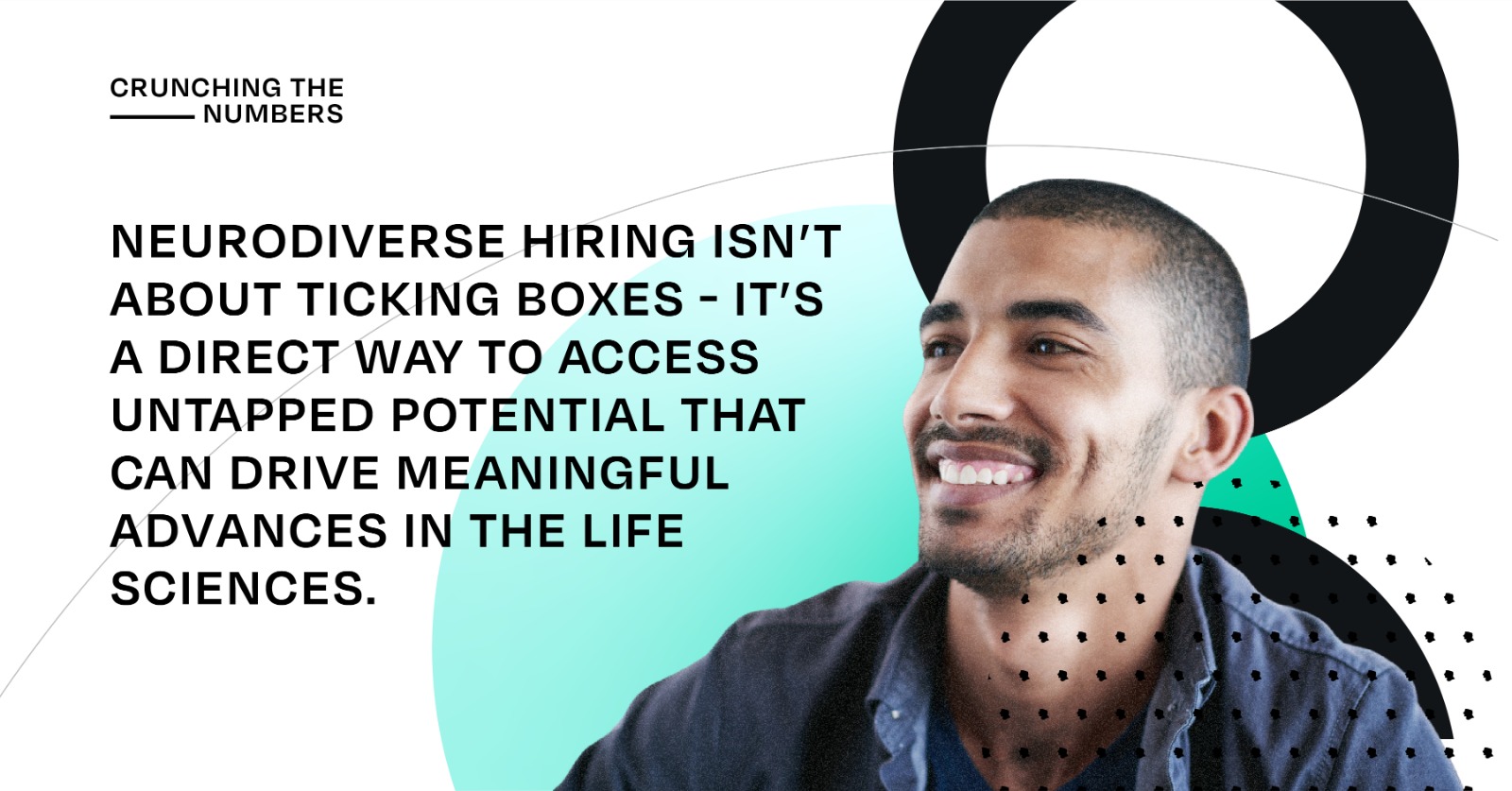The Positive Pill: Neurodiversity in Life Sciences
18-10-2024
Neurodiversity refers to the concept that neurological differences, such as autism, ADHD, dyslexia, and others, are natural variations of the human brain rather than deficits. In the life sciences sector – where innovation, precision, and problem-solving are vital – neurodiverse individuals bring distinct cognitive strengths that enhance research, development, and operations.
For life sciences companies, recruiting neurodiverse candidates is becoming a competitive imperative. Leading firms like SAP and GSK have adopted neurodiversity hiring initiatives, finding that neurodiverse teams offer fresh perspectives, creative problem-solving, and enhanced performance in specialised tasks. These initiatives also create a more inclusive and supportive work environment, improving employee retention and satisfaction.
As the life sciences industry evolves, recruiting neurodiverse talent is not just about inclusivity but about driving progress and innovation. In this article, we explore how inclusive hiring practices are shaping the future of the sector and why neurodiversity is critical to maintaining a competitive edge.
How neurodiverse candidates can transform your team
In a sector where companies are constantly looking to stay ahead of the curve, neurodivergent candidates offer a real competitive edge. Often, the best solutions come from those who think differently. That’s where neurodiverse individuals can make a difference, offering fresh perspectives and skills that can transform how research and development projects unfold.
These perspectives bring an innovative approach to solving complex problems. A study published in Frontiers in Psychiatry found that individuals with autism display exceptional pattern recognition and analytical thinking – skills that are particularly valuable in fields like genomics and pharmaceutical development. By looking at problems through a different lens, they often solve problems others might overlook, pushing the boundaries of what is possible.
Beyond innovation, diverse skillsets are another key benefit neurodiverse individuals bring to the table. Many excel in analytical thinking, attention to detail, and creative problem-solving. For example, professionals with ADHD often thrive in high-pressure environments that demand focus and energy, while those with dyslexia may bring strong spatial reasoning skills. According to Harvard Business Review, neurodiverse professionals can even outperform their neurotypical peers by up to 30% in tasks that require precision, such as laboratory work or quality control, making their contributions invaluable in life sciences.
Improved team dynamics are yet another advantage. When people with different cognitive strengths come together, they challenge conventional thinking and encourage more innovative collaboration. Research by Deloitte found that teams with cognitive diversity are 20% more likely to innovate successfully, as the range of perspectives allows for more creative problem-solving and better decision-making. Teams that are diverse in thought are more likely to communicate effectively, explore creative solutions, and ultimately perform better.
Neurodiversity in action: the companies changing the game
Many life sciences companies are realising the competitive advantages of neurodiverse talent, but how are they actually making these changes? Let’s look at two real-world examples where recruitment strategies were adapted to support neurodiverse employees – and the impact they’ve had.
SAP, a global leader in life sciences software, launched its Autism at Work initiative in 2013. Recognising that traditional recruitment processes can be challenging for neurodiverse candidates, SAP adapted its hiring practices by implementing project-based assessments and hands-on work trials. This approach has enabled neurodiverse employees, particularly those on the autism spectrum, to excel in areas like data analysis, pattern recognition, and software testing. SAP’s initiative has been incredibly successful, with a 92% retention rate for neurodiverse employees.
GSK, one of the world’s leading pharmaceutical companies, has tailored its recruitment practices to actively support and attract neurodiverse talent. GSK’s recruitment strategy includes adjusting interview processes to make them more accessible and providing workplace accommodations, such as quiet spaces and mentoring support for neurodiverse employees. This has resulted in greater employee engagement, improved problem-solving abilities, and a more dynamic approach to overcoming challenges in the pharmaceutical industry.
These examples show that by making simple but thoughtful adjustments to their recruitment processes, companies like SAP and GSK have unlocked a wealth of talent that brings unique strengths to their teams. Neurodiverse hiring isn’t about ticking boxes – it’s a direct way to access untapped potential that can drive meaningful advances in the life sciences.

Ready to take the next step in building an inclusive and innovative workforce?
Download our Employer’s Strategy for Neurodiversity report, offering in-depth insights into how neurodiverse hiring practices can drive your organisation’s success. At Evolve, we’re committed to supporting companies and candidates alike, helping to create workplaces where everyone can thrive.
Browser Update Required
This website does not support your current version of Internet Explorer, Please download the recent version from one of the links provided.
Update to Google Chrome Update to Internet Edge